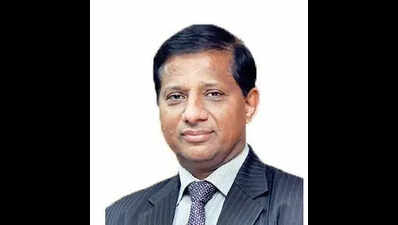Mumbai: Calling into question the CBI’s “pick-and-choose policy”, a special court recently discharged K V Brahmaji Rao, a former executive of the Punjab National Bank (PNB), seven years after he was first accused in the Rs 23,000 crore fraud case involving fugitive jewellery businessman Nirav Modi.Among the 25 accused individuals and companies in the case, Rao is the first to be discharged from it. The special CBI judge noted that Rao cannot be singled out and burdened with criminal liability. “It is interesting to note that the prosecution had proceeded against the officials in a pick-and-choose manner … . The material shows that the prosecution has chosen to implicate only a few while leaving out others who stood on an identical footing in the decision-making process,” special judge A V Gujarathi said.The judge said that by “no stretch of imagination” can it be said that Rao derived any pecuniary benefit or acted in disregard of safeguards protecting public interest.“Merely being an executive director of PNB and the fact that the implementation of RBI directives was delayed pursuant to a unilateral decision of the IT department and duly approved by the MD & CEO, sans any other allegation, does not constitute an offence of conspiracy and cheating. Therefore, this court is of the view that no prima facie case is made out against the accused under any of the provisions invoked in the chargesheet,” the judge said.The judge said the RBI’s own complaint in 2018 before a magistrate’s court in New Delhi excluded Rao but named other senior officials of the PNB — Usha Ananthsubramaniam, former MD and CEO, Sanjeev Sharan, executive director, and Nehal Ahad, general manager, international banking division — as accused. The trio are also named as accused in the CBI case. “Accused (Rao) was not directly working at the branch where the fraud was committed by employees of the bank. The accused was working in supervisiory capacity. More than 7,000 branches were under his control. Under these circumstances, it is humanly impossible to keep eye on the transactions taking place in each and every branch,” the judge said.The judge said the allegations against Rao were vague and unsupported by evidence and permitting the proceedings to continue would subject him to unwarranted harassment, contrary to the constitutional guarantee of fair procedure.Refuting the allegations of Rao’s role in criminal conspiracy, the judge said that “misgovernance or a brief breakdown of law and order does not equate to a criminal conspiracy at the highest level without clear evidence of concerted effort and a meeting of minds”.The judge, in the detailed 30-page order noted that Rao had no direct involvement in the fraudulent acts committed by branch officials, specifically former PNB deputy manager Gokulnath Shetty and single-window operator Manoj Kharat. The judge said the fraud was a localised issue at a single branch, and due to the bank’s hierarchical structure, a senior official in a policy-making role in Delhi would not have been aware of such a localised issue unless it was escalated. The judge also did not find evidence that Rao overruled internal guidelines or pressured subordinates to deviate from bank procedures. It was further noted that the responsibility for implementing the SWIFT-CBS integration lay with the information technology division, which was overseen by a different executive director and the decision to delay the implementation of RBI directives was made by the IT department and approved by the MD & CEO, not Rao.It was further found that RBI communications dated Oct 27 and Nov 11, 2016, were issued after the international banking division was reassigned to another executive director, so any non-compliance cannot be attributed to Rao.The judge said that Rao’s role was focused on high-level policy framing and implementation, not on the day-to-day operations or supervision of individual branches. The judge noted that prosecution witnesses and documents point to the failure of other departments, including the concurrent and external auditors, as well as zonal and circle officers, to report the fraud.The CBI had argued that senior PNB officials, including Rao, ignored crucial warnings from the RBI about fraudulent SWIFT transactions. It was alleged that despite being responsible for policy and overseeing the zone that included the Brady House branch — the fraud’s epicentre — Rao supposedly failed to take timely action.The judge held that directors cannot be held liable merely by holding office and that there must be material to show that such person had an active role along with intention.Rao’s defence lawyer Chaitanya Malgaonkar argued that as an executive director, his role was primarily focused on policy-making, and he was not involved in the day-to-day operations of individual branches or the issuance of fraudulent LOUs. He further argued that crucial decisions, such as the integration of SWIFT with the core banking system (CBS), were dependent on the IT department and received approval from the managing director and CEO, with delays being outside Rao’s direct control.It was also argued that accused Gokulnath Shetty was responsible for entry in SWIFT/CBS. “During the period 2011-2017, Gokulnath Shetty issued 208 LOCs. The scam came to the light only after his retirement. The accused was not involved in issuance of fraudulent LOCs. He had no knowledge of the fact. During this period internal or external auditors reviewed all the transactions,” Malgaonkar submitted.











